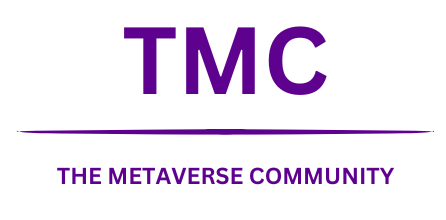The Metaverse isn’t just science fiction anymore; it’s a rapidly evolving digital landscape that’s set to transform the way brands connect with consumers. Imagine stepping into a virtual world where advertising isn’t just seen or heard, but experienced in a way that’s both immersive and interactive. This isn’t a far-off dream; it’s already happening through innovative strategies in branding and marketing, where ai and avatars come to life, creating unique consumer experiences within virtual reality environments.
Major brands like Adidas and American Apparel are leading the charge, hosting branded events within the Metaverse that blur the lines between the physical and digital worlds. These events aren’t just about showcasing products; they’re about creating unforgettable experiences that leave a lasting impression on consumers. For example, high-end fashion brands like Gucci are also exploring metaverse platforms, creating exclusive virtual fashion shows and limited-edition digital collections. With a strategic approach, brands can leverage this new platform for enhanced consumer engagement.
Augmented Reality: A Game-Changer for Online Shopping
One particularly exciting subfield is Augmented Reality (AR) marketing. Ever wished you could see how that new sofa would look in your living room before buying it? AR makes that possible. As Crespo-Pereira et al. (2023) point out, this field is still in its early stages, but brands like IKEA and Dyson are already demonstrating its potential. By allowing customers to virtually place products in their own homes, they’re not just selling furniture or appliances; they’re selling an experience.
This level of immersion is a game-changer for brand engagement and advocacy. When customers can interact with products in a meaningful way, they’re more likely to form a deeper connection with the brand, leading to increased loyalty and word-of-mouth recommendations. This is where the gaming industry’s experience in creating engaging, interactive environments can inform brand strategies within the Metaverse.
Blockchain: Building Trust in the Metaverse
But the Metaverse isn’t just about flashy visuals and immersive experiences; it’s also about building trust. With the integration of blockchain technology, brands can now authenticate their products within the Metaverse, combating counterfeiting and ensuring that customers know they’re getting the real deal. This level of transparency could also potentially verify marketing claims, adding another layer of trust between brands and consumers.
The Metaverse’s heightened sensory capabilities could further enhance this trust. Imagine being able to virtually experience the quality of a product before you buy it, or feeling the texture of a fabric through haptic feedback. These immersive interactions could make brand experiences more memorable and trustworthy than ever before.
The Metaverse isn’t just a buzzword; it’s a paradigm shift in how brands connect with consumers. But to truly harness its power, marketers need to understand how the Metaverse aligns with the traditional marketing funnel. Let’s explore how different platforms can be leveraged at each stage, from awareness to conversion.
At the top of the funnel, it’s all about grabbing attention and sparking interest. Here’s where platforms like Fortnite shine, using their gaming environment to create unique branding opportunities.
The Metaverse Marketing Funnel: A New Dimension for Brand Engagement
As consumers move down the funnel, they’re actively considering their options. This is where platforms like Roblox can excel, utilizing innovative strategies to maintain consumer engagement and interest.
Top of the Funnel: Awareness & Interest
At the bottom of the funnel, it’s about driving conversions and turning customers into brand advocates. This is where decentralized platforms like Decentraland come into play, providing a unique space for immersive brand experiences.
- Fortnite: With its massive user base and cultural relevance, Fortnite is a prime platform for creating large-scale, attention-grabbing events that generate buzz and introduce your brand to a wide audience. Think virtual concerts, branded in-game items, or interactive experiences that leave a lasting impression.
Middle of the Funnel: Consideration & Evaluation
Augmented Reality: Enhancing the Funnel at Every Stage
- Roblox: By creating engaging, user-generated content or sponsoring existing games, you can immerse potential customers in your brand’s world. Offer virtual try-ons, interactive product demos, or gamified experiences that allow users to explore your offerings in a fun and memorable way.
Bottom of the Funnel: Conversion & Advocacy
Augmented Reality (AR) transcends the traditional funnel, enhancing engagement at every stage. It is an essential ingredient in the modern marketing strategy, offering new ways for brands to connect with consumers.
- Decentraland: By establishing a presence in Decentraland, you can offer exclusive experiences, limited-edition digital assets, or virtual real estate that fosters a sense of community and loyalty. This can lead to direct sales, repeat business, and even user-generated content that promotes your brand organically.
Blockchain: Building Trust & Transparency
Blockchain technology plays a crucial role in building trust and transparency throughout the funnel. By authenticating products, verifying marketing claims, and ensuring secure transactions, blockchain can enhance brand credibility and foster long-term customer relationships.
- Top: AR-powered social media filters or interactive ads can capture attention and spark curiosity.
- Middle: Virtual try-ons or product demos can help consumers evaluate your offerings in a personalized way.
- Bottom: AR-enhanced unboxing experiences or loyalty programs can solidify conversions and foster advocacy.
The Metaverse, while brimming with potential, isn’t without its growing pains. Several challenges need to be addressed for widespread adoption and seamless integration into marketing strategies:
Despite these challenges, the Metaverse is rapidly evolving, and innovative solutions are emerging. Brands that proactively address these challenges and invest in Metaverse-ready strategies will be well-positioned to reap the rewards.
Navigating Challenges & Embracing the Future
The Metaverse is not just a passing trend; it’s a fundamental shift in how we interact with the digital world. By embracing the Metaverse’s potential while navigating its challenges, brands can unlock a new dimension of customer engagement and shape the future of marketing.
- Accessibility & Affordability: High-quality VR headsets and powerful computing devices are still relatively expensive, limiting access for many consumers. As technology becomes more affordable and accessible, the Metaverse will become more inclusive.
- Platform Interoperability: The Metaverse currently exists as a fragmented landscape of different platforms with varying technologies and standards. This lack of interoperability makes it difficult for brands to create cohesive experiences across multiple platforms. The development of standardized protocols and cross-platform compatibility will be crucial for a seamless user experience.
- Data Privacy & Security: As consumers spend more time in the Metaverse, concerns about data privacy and security will become increasingly important. Brands need to prioritize transparent data practices and robust security measures to build trust with consumers.
- Regulatory & Legal Frameworks: The Metaverse presents new legal and regulatory challenges, such as intellectual property rights, virtual property ownership, and consumer protection. As the Metaverse evolves, clear and comprehensive regulatory frameworks will be essential to ensure fair and ethical practices.
Despite these challenges, the Metaverse is rapidly evolving, and innovative solutions are emerging. Brands that proactively address these challenges and invest in Metaverse-ready strategies will be well-positioned to reap the rewards:
- Early Adoption Advantage: Brands that experiment with Metaverse marketing now can gain valuable insights, build a loyal following, and establish themselves as leaders in this emerging space.
- Enhanced Brand Engagement: The Metaverse offers unprecedented opportunities for immersive brand experiences that go beyond traditional marketing tactics. Brands can create deeper connections with consumers, fostering loyalty and advocacy.
- New Revenue Streams: The Metaverse opens up new revenue streams, such as virtual goods, digital assets, and virtual real estate. Brands can leverage these opportunities to create unique value propositions and drive growth.
- Data-Driven Insights: The Metaverse generates vast amounts of data on consumer behavior and preferences. Brands can leverage this data to refine their marketing strategies, personalize experiences, and drive better business outcomes.
The Metaverse is not just a passing trend; it’s a fundamental shift in how we interact with the digital world. By embracing the Metaverse’s potential while navigating its challenges, brands can unlock a new dimension of customer engagement and shape the future of marketing.




